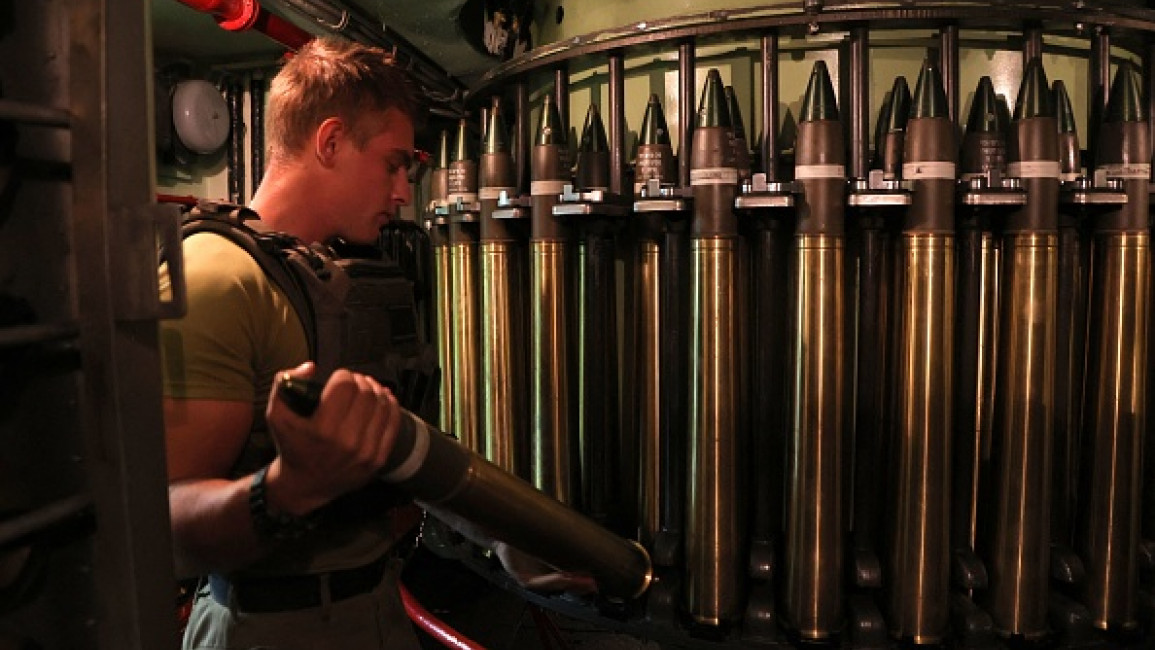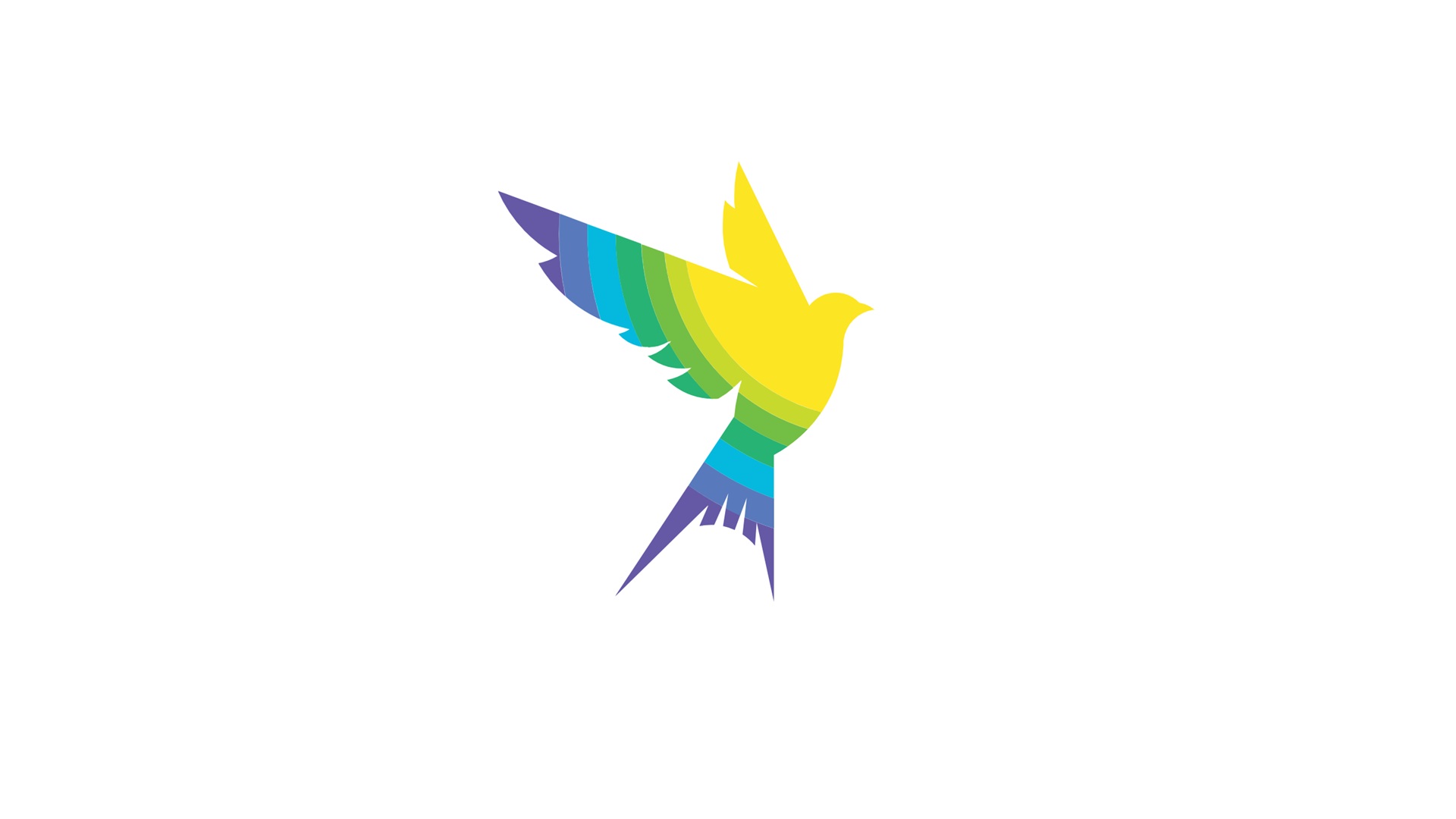[This piece is part of a yet-to-be launched investigative section called “For the Record”. The New Arab believes that public interest comes first and that publishing research findings, even if not conclusive, can inform future investigative efforts].
[This article is the third part of Italian weapons in Gaza, a series of investigations into Italian arms sales to Israel in the context of the ongoing onslaught on the Strip].
The Israeli Navy has been actively involved in attacks against Gaza. Since October 9, Israeli naval vessels have supported ground and air forces, actively contributing to the destruction of the Strip. Two Italian companies, Leonardo and Simmel Difesa, have long provided Israel with the military capabilities to bombard Gaza from the sea.
While Leonardo (formerly known as Finmeccanica) is well-known as Italy's largest defense enterprise and the thirteenth largest globally, Simmel has garnered less attention over the years. Based in Colleferro, Rome province, it is Italy's leading producer of medium and large-caliber ammunition and boasts international leadership in naval ammunition.
In 2022, Simmel's production value nearly reached €99 million ($107 million), marking a growth of over €46 million ($50 million) from the previous year. Since 2014, the sole shareholder of the company has been Nexter System S.A., an arms manufacturer owned by the French state.
Before delving into the role of these two Italian companies, it's crucial to understand the role of the Israeli Navy in operations against the Gaza Strip. As clarified in an interview with Israeli Lieutenant Colonel Steven published in February 2024 in Israel Defense magazine, Israeli ships have been used since October 7 in "defensive missions", later transitioning to offensive actions. "Just three weeks after the start of the fighting, we were already participating in the battle with a dual mission: surveillance and fire," said Lt Col Steven.
Israeli corvettes were extensively used in the war on the Strip. On 29 November 2023, for example, the navy reportedly fired upon some houses in Khan Younis, southern Gaza. According to Palestinian news agency Wafa, the bombardment caused no deaths or injuries, but the attack came on the last day of a ceasefire agreed upon between Hamas and Israel.
"'We know for sure that Leonardo sells the cannons but has every interest in selling a complete product, including ammunition,' said Alberto Valleriani, an activist from the No War Valle del Sacco Assembly."
In February 2024, according to Turkish state-owned news agency Anadolu, Israeli corvettes reportedly targeted a fishing boat, forcing the crew to return to shore. Attacks on fishermen are not new; before October 7, the navy was tasked with preventing Palestinian boats from venturing out, effectively imposing a naval embargo against the Strip.
Arming the Israeli corvettes has been the responsibility of Italy's Oto Melara company - now controlled by Leonardo - since the 1970s. Sa'ar 3, 4, and 5 vessels are all equipped with Oto Melara 76mm cannons and feature the Orion RTN-10X fire-control radar system produced by Selenia, a company later merged into Selex ES, also part of the Leonardo group.
The former Finmeccanica has built a strong relationship with Israel in the maritime field, as evidenced by its participation in the modernisation project launched in 2015 to equip the Israeli Navy with four additional corvettes. The construction of the Sa'ar 6-class vessels, each worth $400 million, was entrusted to Thyssenkrupp, with the German firm committing to cover one-third of the costs.
The corvettes were delivered between December 2020 and July 2021 and were once again equipped with Oto Melara 76mm cannons. According to the official version of the Israeli government, these new vessels were intended for defending the methane gas fields in the Mediterranean, which are also claimed by neighbouring states.
INS Magen and INS Oz corvettes were however used for the first time to bombard Gaza, as showcased in footage released by the Israeli army on 14 October 2023. Both vessels are armed with Oto Melara cannons, but it is not possible to determine with certainty the type of ammunition being used. While Leonardo/Oto Melara have occasionally issued press releases celebrating sales agreements with Israel, there has been no mention of the munitions.
However, the clashes in the Red Sea between Yemen’s Houthi-led Ansarullah movement and the navies participating in the EU Aspides mission have provided relevant information to trace the origin of the ammunition sold to Israel. The Italian destroyer Caio Duilio is equipped with Oto Melara 76mm cannons, the same as those on the Israeli corvettes. According to Italian defense magazine RID, it is "highly plausible" that HE-PFF ammunition with a proximity fuse 3AP, both manufactured by Simmel and Oto Melara, was used.
"'Italy continues to advocate for de-escalation and a two-state solution, yet at the same time, it arms Israel, which periodically invades Gaza,' noted Francesco Vignarca, a representative of the Italian Peace and Disarmament Network."
The same type of ammunition is also mentioned in a 2021 article published on the website of US broadcaster ABC, in which attempts are made to trace the origin of a strike that resulted in the death of an 11-year-old girl in Gaza. According to the investigation, the ammunition used is an L62 HE-PFF IM84, fired from the Oto Melara cannons installed on the new Israeli corvettes.
These L62 HE-PFF IM84 rounds are included in Simmel's catalog and were specifically designed to fit all Oto Melara 76mm cannons. However, according to the annual reports on the export, import, and transit operations of arms material presented by the Italian government to parliament from 2016 to 2022, there is no evidence that Simmel has signed sales agreements with Israel. Yet, in 2021 and 2022, under the "Leonardo" entry, there were sales operations of IM84 rounds - Simmel material - along with 76mm L62 HE-PF-IM6-OES projectiles, also part of the Colleferro-based company's catalog and similarly intended to fit Oto Melara cannons.
The likelihood of Simmel ammunition being sold to Israel is also confirmed by Alberto Valleriani, an activist from the No War Valle del Sacco Assembly, which has been monitoring the company for years. "The same projectiles fired by the corvettes against the Strip are present in Simmel's catalog. We know for sure that Leonardo sells the cannons but has every interest in selling a complete product, including ammunition," said Valleriani. Having precise information on this matter, according to him, is not possible due to the lack of real transparency from the Italian government. The annual report submitted to parliament does not specify which products the companies sell to individual countries, and the reform of Law 185/90 currently under discussion risks making government actions even less transparent.
Italian magazine Altreconomia sought comment from Simmel with regards to their plausible exports to Israel, but no response has been received in time for publication.
"The annual report submitted to the Italian parliament does not specify which products the companies sell to individual countries, and the reform of Law 185/90 currently under discussion risks making government actions even less transparent."
The case of the Oto Melara/Leonardo cannons sheds light on a system that fuels conflicts in already volatile regions. "Italy continues to advocate for de-escalation and a two-state solution, yet at the same time, it arms Israel, which periodically invades Gaza," noted Francesco Vignarca, a representative of the Italian Peace and Disarmament Network. "Israel uses its navy to attack the Strip, not to defend itself from Arab countries, yet Italy contributes to its reinforcement," added Vignarca.
Meanwhile, several Italian anti-war organisations, including the Peace and Disarmament Network, have launched a petition urging members of the lower house of parliament (Camera dei Deputati) not to approve amendments to Law 185/90, with the aim to safeguard transparency and the existing control mechanisms over arms exports.
This is an edited and abridged translation by Alba Nabulsi. Click here to read the original Italian-language investigation published by Altreconomia magazine on 20 March 2024.
Disclaimer: While The New Arab Investigative Unit independently fact-checked the datasets used in this investigation, all questions should be addressed to its original publisher Altreconomia.





![President Pezeshkian has denounced Israel's attacks on Lebanon [Getty]](/sites/default/files/styles/image_684x385/public/2173482924.jpeg?h=a5f2f23a&itok=q3evVtko)



 Follow the Middle East's top stories in English at The New Arab on Google News
Follow the Middle East's top stories in English at The New Arab on Google News